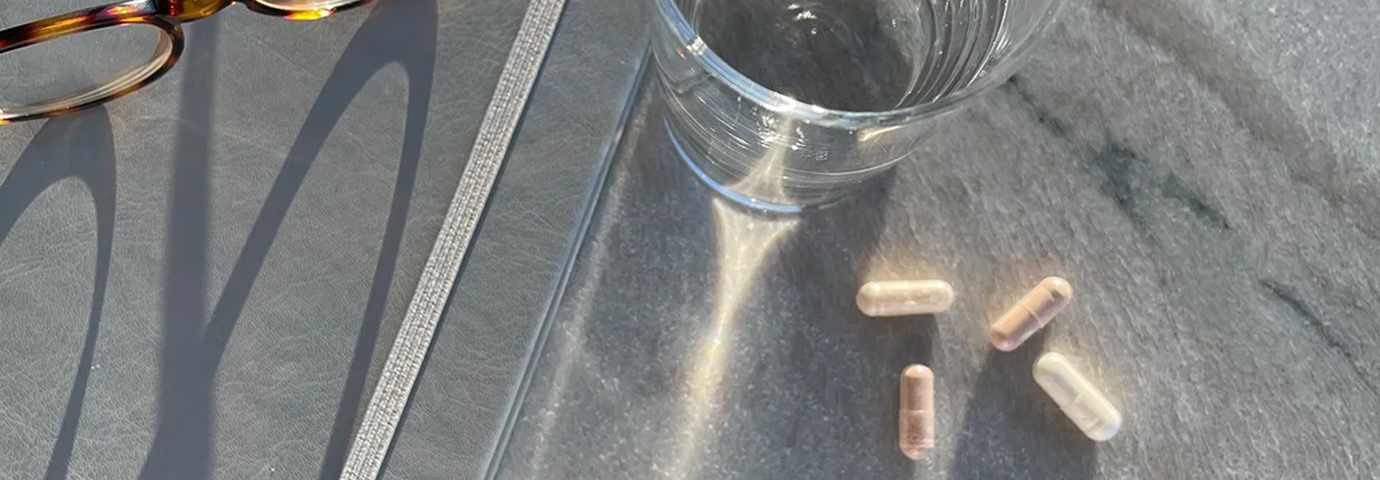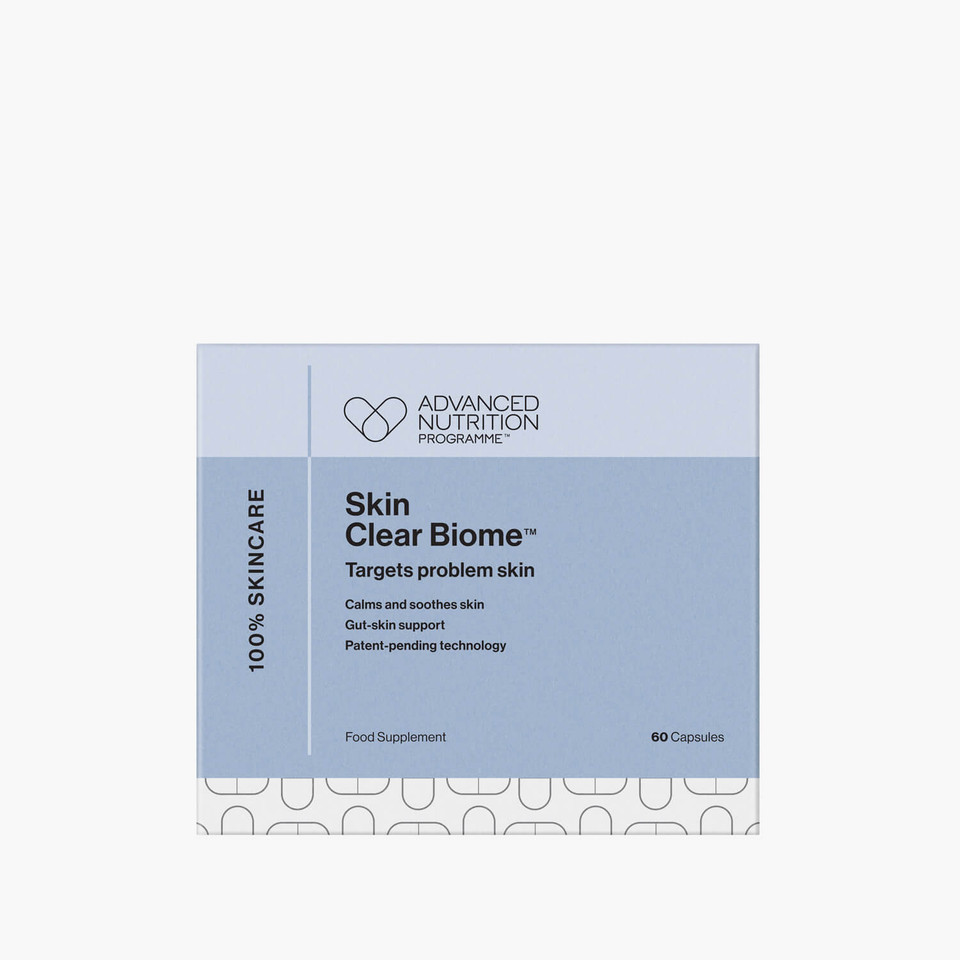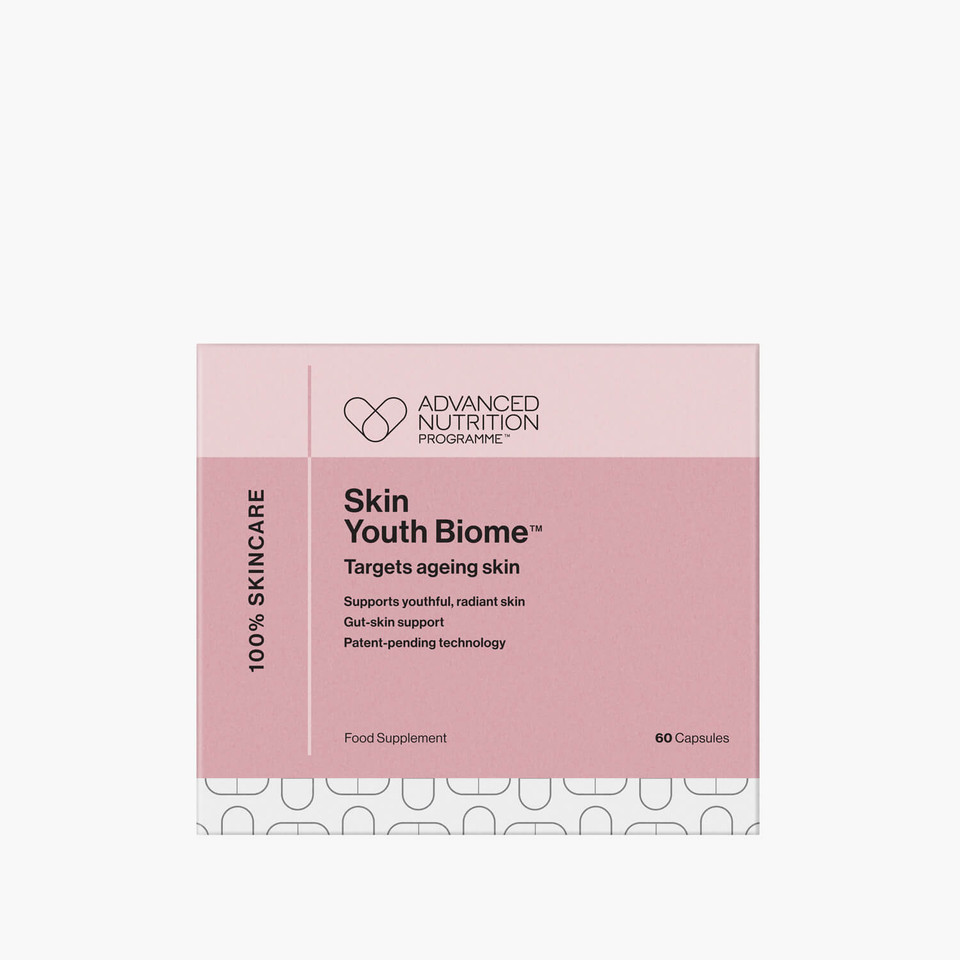Microbiome supplements: myth busting

Microbiome is the hot topic in the skincare industry. For biome (or microbiome) supplements, knowing which capsules to take can be confusing and a bit of a minefield. With so much information, there are a lot of misconceptions, and it can be hard to navigate through the web. Do they just work to support your gut? Do they need to be refrigerated? All questions you may find yourself asking when browsing. Our skin researchers are here to help separate fact from fiction and demystify some of the common myths on biome-based supplements to help you navigate through the trends and hype.
Myth 1: All microbiome supplements need to be refrigerated
Ensuring the biome-based supplements are stored correctly is key for shelf life. However, if it doesn’t specify on the packaging that it needs to be refrigerated, this means that it’s shelf stable and doesn’t need to be. This will all depend on how the product is packaged. To preserve the integrity of the bacteria, it is important to protect them from heat, light, and air e.g.: some manufacturers may store supplements in nitrogen-flushed, aluminium pods to protect against these elements. Make sure you check how the product is packaged and instructions on how it should be stored to protect the contents of the capsules.
Myth 2: The higher number the better
When it comes to quantity, more is not always better in this case. For example, having fifty or twenty billion live cultures in a microbiome supplement is not necessarily going to be a better product. The quality and choice of strains is more important to ensure the product could address your specific digestive and skin concerns. When looking at the number, it’s also important to determine the guaranteed live cultures by the ‘best before date’ rather than “at the time of manufacture”. If the label doesn’t specify, this usually refers to the time of manufacture, which means there is no guarantee what will be in each capsule at time of consumption.

Myth 3: They only benefit your gut
Although biome-based supplements do in fact help support the gut - the good news is that some friendly bacteria can help the skin too and this is welcomed in the skincare world. Emerging research shows, they could help with specific skin conditions such as acne and eczema ¹. In addition, they help support a balanced microbiome with a variety of friendly bacteria and minimal unfriendly bacteria to support the skin microbiome and help prevent these type of skin concerns flaring up. When you’re researching microbiome supplements, ensure it has evidence-based research behind the formulation.
Myth 4: I consume enough friendly bacteria through food
There are many friendly bacteria foods available including kimchi, sauerkraut, yoghurt, tempeh, and miso – which are all good for your gut microbiome. However, just relying on consuming fermented foods only may not be enough. In general, fermented foods don’t contain sufficient levels of bacteria and in some cases the bacteria may even have been added to the product after it was produced and wasn’t a natural inhabitant of the food itself. Taking a high-quality microbiome supplement shouldn’t be compared to consuming fermented foods. That’s why our skin researchers recommend combining both to support your gut and for radiant, youthful-looking skin.

Myth 5: Your body gets used to them
This is not true. As our bodies contain approximately 39 trillion bacteria, it’s important to support our microbiome constantly. In today’s modern, fast-paced lifestyles mean we are consuming more sugary foods, alcohol and exposed to higher stress levels. All of which can result an imbalance in the gut microbiome. Meaning our bodies may experience dysbiosis and have a higher need for additional support such as skin-friendly bacteria. When considering how to improve the health of your skin through the microbiome, don’t just rely on eating a few fermented foods. Consider a microbiome supplement and look at the number of guaranteed bacteria at the best before date, how the product is packaged and the evidence-based science behind the formulation.
Shop Skin Clear Biome™

Shop Skin Youth Biome™

Sources:
1. The effect of probiotics on immune regulation, acne, and photoaging. Mary Margaret Kober, Whitney P Bowe. June 2015.
